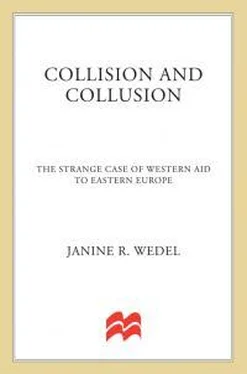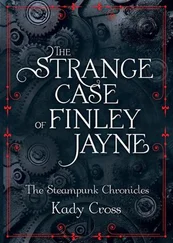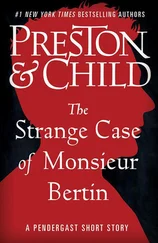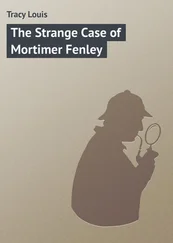Over three days, the consultants did not learn that candidate-to-citizen meetings in parishes—not glitzy mailings or television ads—had mobilized Polish voters. Moreover, the consultants had little idea whom they were encountering as participants. Yes, they were representatives of “political parties.” For the most part, however, these were not national political leaders but, rather, representatives of political discussion clubs that had mushroomed during the relaxation of control preceding the collapse of communism. The truly influential politicians belonged to citizens’ organizations that claimed to represent the collective interests of all society, not those of politicians, who were seen as selfishly competitive. Minister Hall, one of the few real political players present, represented a long-standing, highly influential Christian democratic group, but it was not a political party at the time.
Why did the Poles care to participate in the workshop? It seemed clear that they hardly expected to glean lessons in democracy from the Americans, who could only tell them about curiosities far removed from Polish political or daily realities. The hallway conversations, especially their unspoken subtexts, exposed the gap between the foreigners—enthusiastic, well intentioned, and naive—and the quick-on-the-uptake Poles, who parroted the buzzwords of pluralism and civil society while pursuing the main goal of each of them: access to potentially useful foreigners. The Poles painted a grim picture of their circumstances, one that played to the Westerners’ inflated view of their own usefulness.
A consultant (respectfully): “You were in prison, too? I admire your courage.”
A politician (smiling modestly): “Yes, I was.” [It didn’t take any special courage. I was picked up just like all my friends.]
A consultant: “You suffered. If there’s anything we can help you with now, just let us know.”
A politician: “The workshop has been so enlightening. One thing just occurred to me. There’s a shortage of paper and, you know, we don’t have enough money to buy fax or photocopy machines.” [Of course, we think you can help. Travel abroad? Funds? Other contacts? Anything that might give us visibility in the West and the prestige we need here that is associated with Western exposure. That’s why we bothered to come to your workshop.]
A consultant: “Perhaps my organization could help.”
A politician (humbly): “Oh, we would be most grateful!”
These encounters resembled the rituals observed under communism that had served to cushion foreigners from the real (Polish) world, which foreigners could never quite grasp because they were shielded from harsh realities. Urban Poles, especially those who came into contact with foreigners, tended to talk about things they thought foreigners respected and omitted more dubious topics, such as the wheeling and dealing nearly everyone engaged in to survive. So visitors usually did not learn how Poles obtained goods and services in a shortage economy at a time (1982 and 1983) when the rationing system allowed each citizen one pair of Polish-made shoes per year. Polish formality and reserve arose partially from an instinct to survive in a climate of fear and uncertainty. The rituals and language of public life helped to maintain a mantle of normalcy that enshrouded informal dealings and private life. In its ritual character, public life provided a stark contrast to what many people did unofficially.21 The practice of putting on public shows, honed under communism, was thus ideal preparation for handling the onslaught of people from the West. In an article entitled “Playing the Co-Operation Game,” anthropologist Marta Bruno concludes that “As long as recipients see these occasions [workshops with Western consultants] as a ritual lip-service or as ‘tax,’ which they have to pay in order to obtain funding, they will simply reinforce the artificiality of development projects.”22
The artificiality could be observed on both sides. Oblivious, having had a wonderful time, and having acquired many new “friends,” the consultants moved on to their next workshop in Prague or Budapest. Then they returned home from the whirlwind trip with their misconceptions intact and a stack of makeshift visiting cards. The trip would make good cocktail party conversation for some time; the consultants had made “friends” with the new leaders of Central Europe and helped them to build democracy.
Dozens of such early East-West encounters played out in Warsaw, Prague, and Budapest, and later, when aid resources moved east, in Moscow and Kiev. Deficient in cultural and historical sensibilities, consultants and aid representatives often made social fools of themselves, failing to realize that their chief source of attractiveness was in their own pocketbooks or their perceived access to others’ pockets. Meanwhile, Central and Eastern Europeans—their eyes on foreign travel and access—applied to unsuspecting foreigners the persistence and sophisticated wheeling-and-dealing-skills that they had honed under communism.
A class of resourceful brokers and operators with enough energy and skill to play in the new arena was formed. Central and Eastern European businessmen needed trading partners; academic deans of depleted universities, money to make payroll and foreign trips; physicians, modern equipment and foreign trips. Westerners’ visits to the region, their enthusiasm, and their money provided incentives for local people to formalize existing associations and even to create new initiatives that could attract and receive Western money. As anthropologist Sampson has observed, “Social networks can’t get grants, but autonomous associations can.”23
“Foundations” multiplied: Westerners living in the region were inundated with requests from local friends who had set up organizations and needed help writing English-language proposals to potential funders. One person created a foundation to preserve crumbling monuments, another started one to clean up the polluted environment, and yet another launched a foundation to open a school. As more and more aid money poured in, initiating a project without a Western sponsor became almost unthinkable, like running for public office in the United States after filing for bankruptcy.
The issue was not just money. The issue was, critically, “symbolic capital”—an individual’s combined cultural, social, and financial power, which served to compound the power of the individual’s group in the public arena24—that could be leveraged both in and outside the region. To get money from the West was to be blessed by it, especially in the initial period of East-West contact in each country. Securing Western—sometimes specifically American—funds greatly enhanced one’s reputation and lent legitimacy that could be leveraged internally to enhance symbolic capital and accrue further political, financial, and social rewards. For this reason, even small sums of hard currency could be enormously life enhancing to the beneficiaries.
Just how did partners find each other? The ad hoc atmosphere of the early days of the aid effort was custom made for the class of well-heeled brokers that arose to take advantage of opportunities and to guide foreign partners. Having just come from a power lunch in Paris, the jet-setting American CEO in Prague needed local fixers not only to set up contacts and translate, but also to explain the ABCs of doing business in the new frontier: “Economist,” “bank,” “profit,” “tomorrow,” and “yes” didn’t necessarily mean the same things as in the West. Western foundation representatives, too, needed translators, fixers, and, for the larger operations, local office staff.
The promise of Western money and access often inspired secrecy, suspicion, and competition among groups. The arrival of government and foundation delegations from the West was greeted with bursts of gossip and speculation about who was meeting with whom and who was doing and getting what. Each group developed—and guarded—its own prized Western contacts. It was not necessarily in a group’s interest to share information and contacts with the outside world.
Читать дальше












